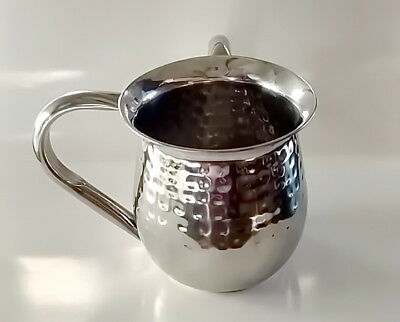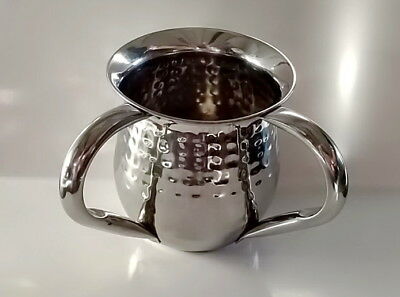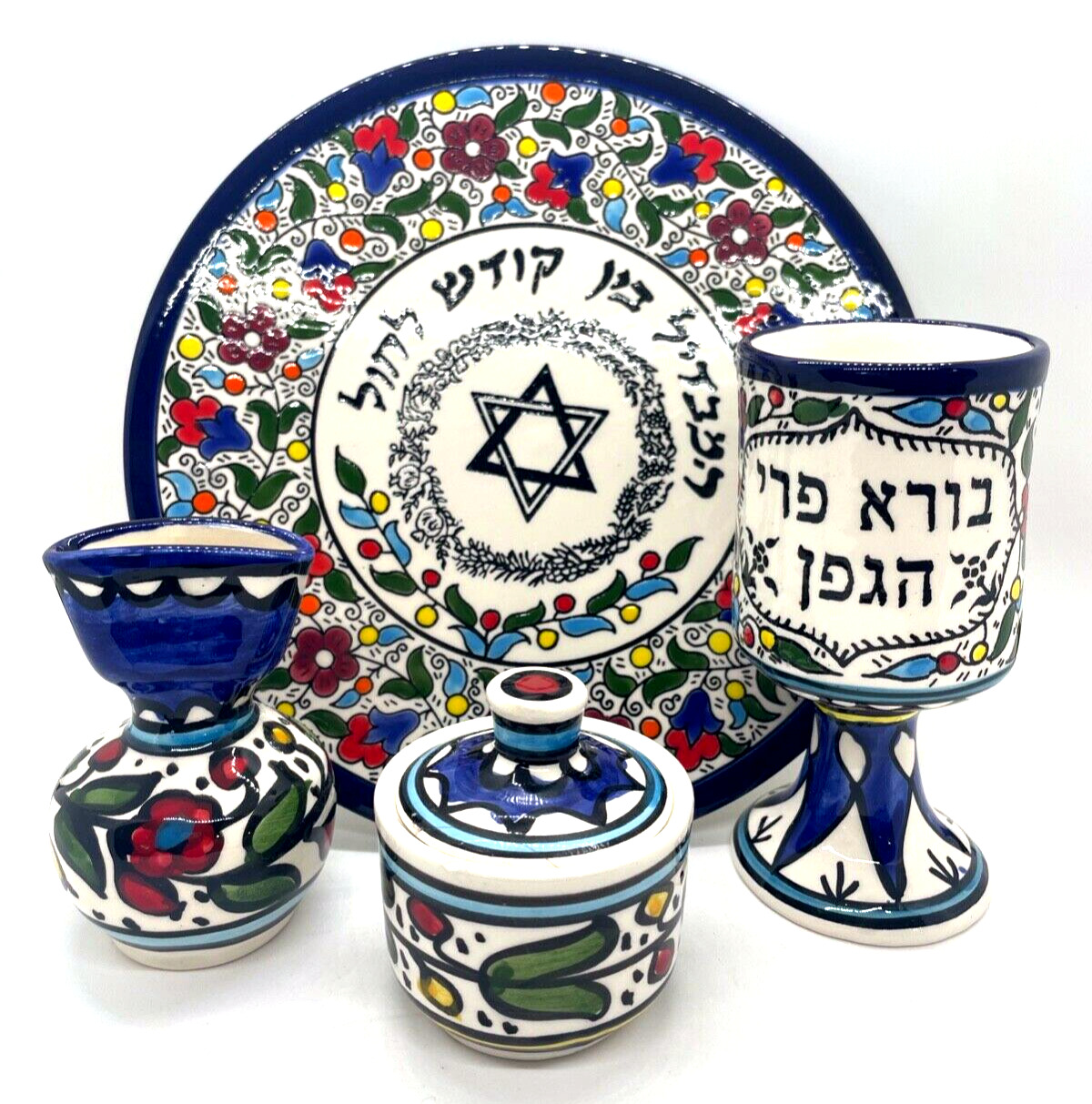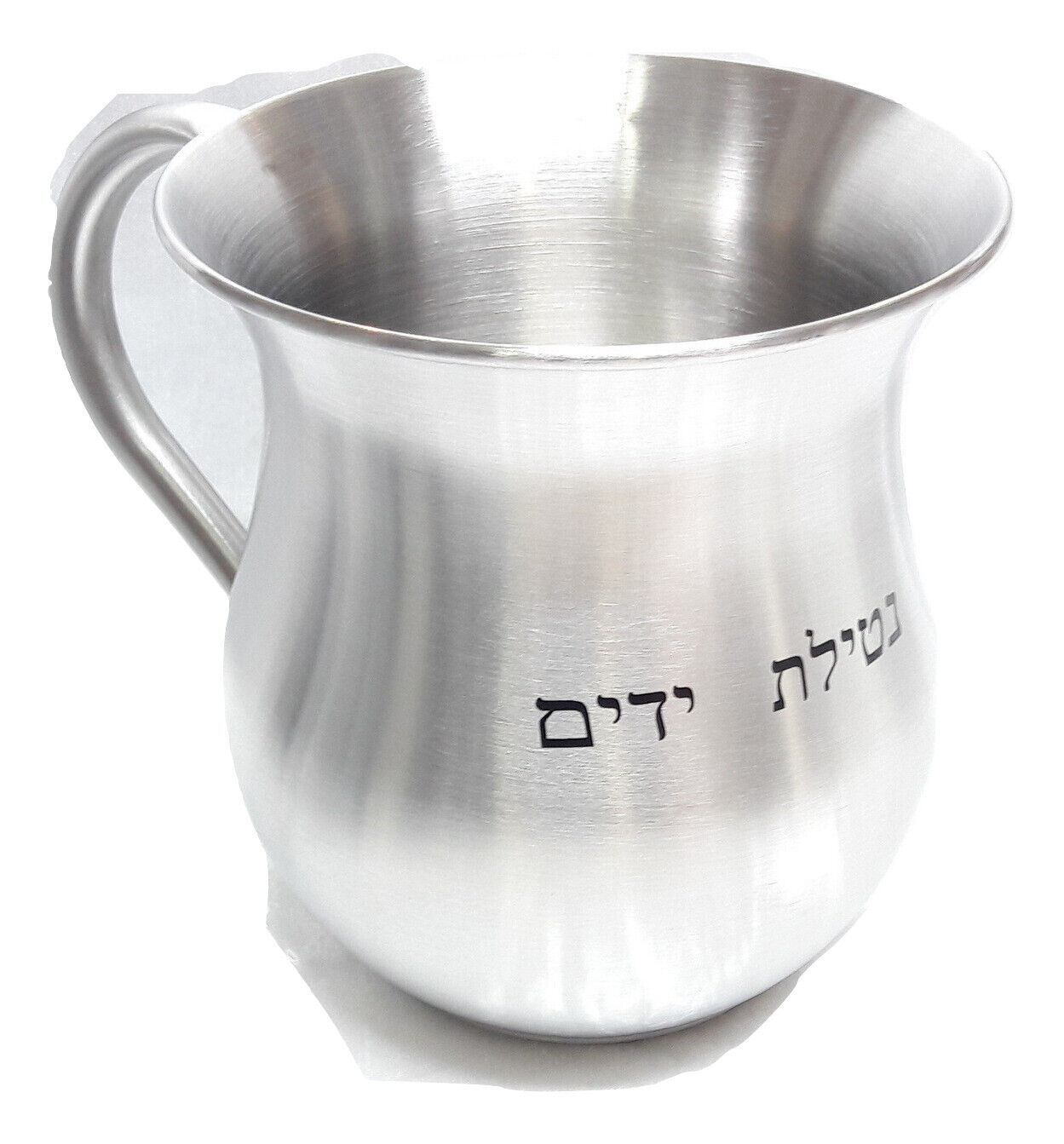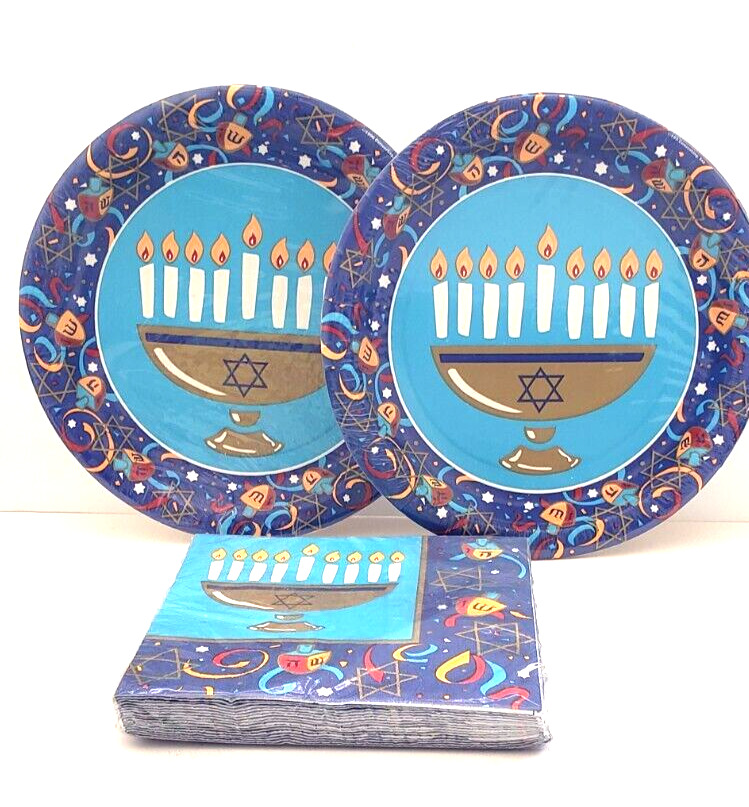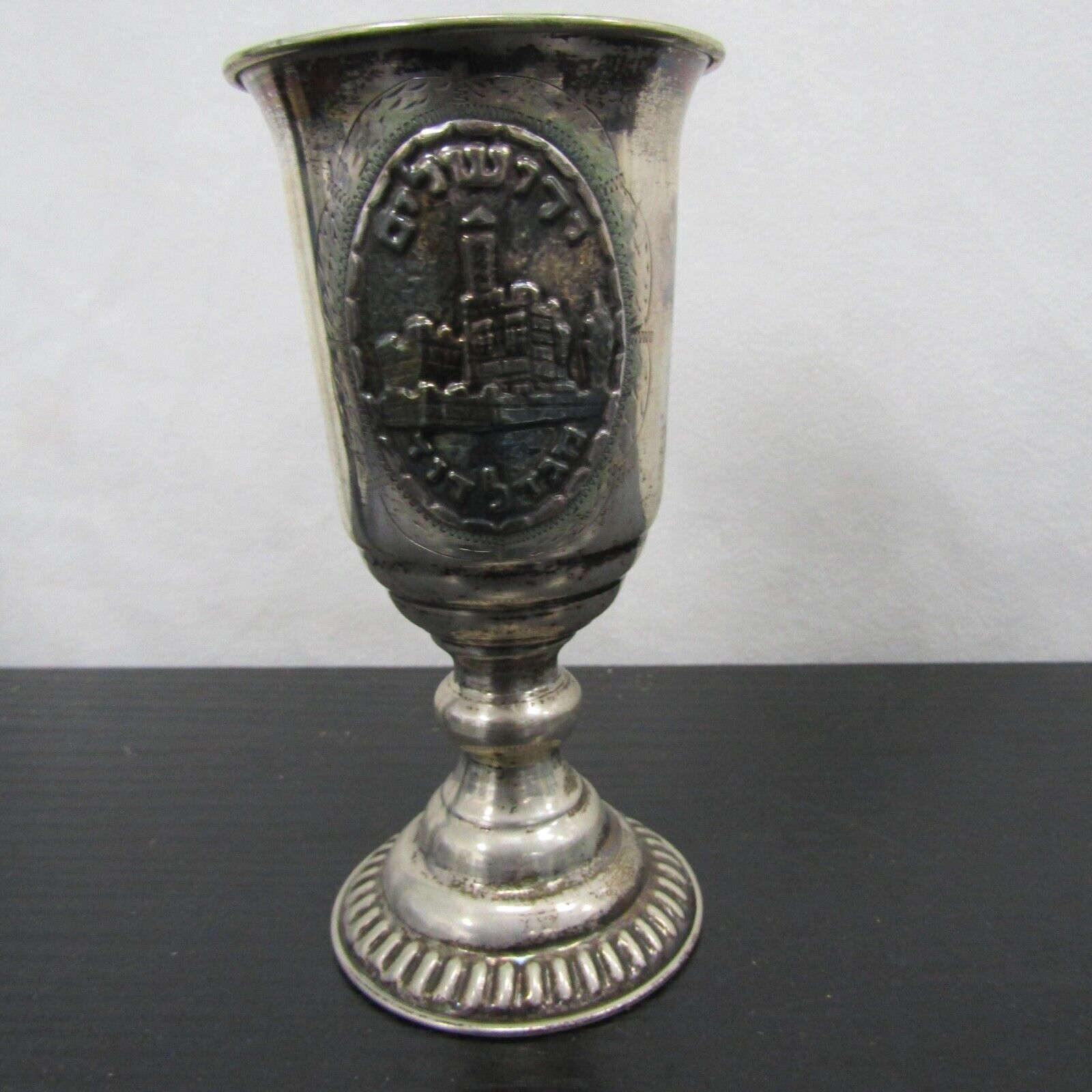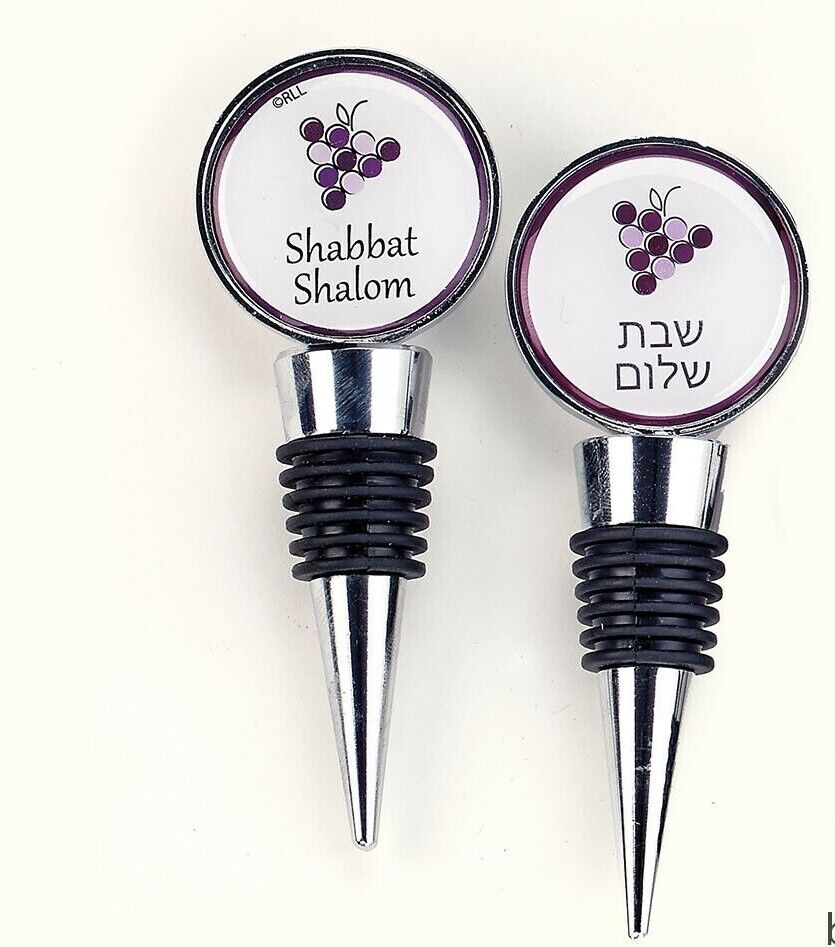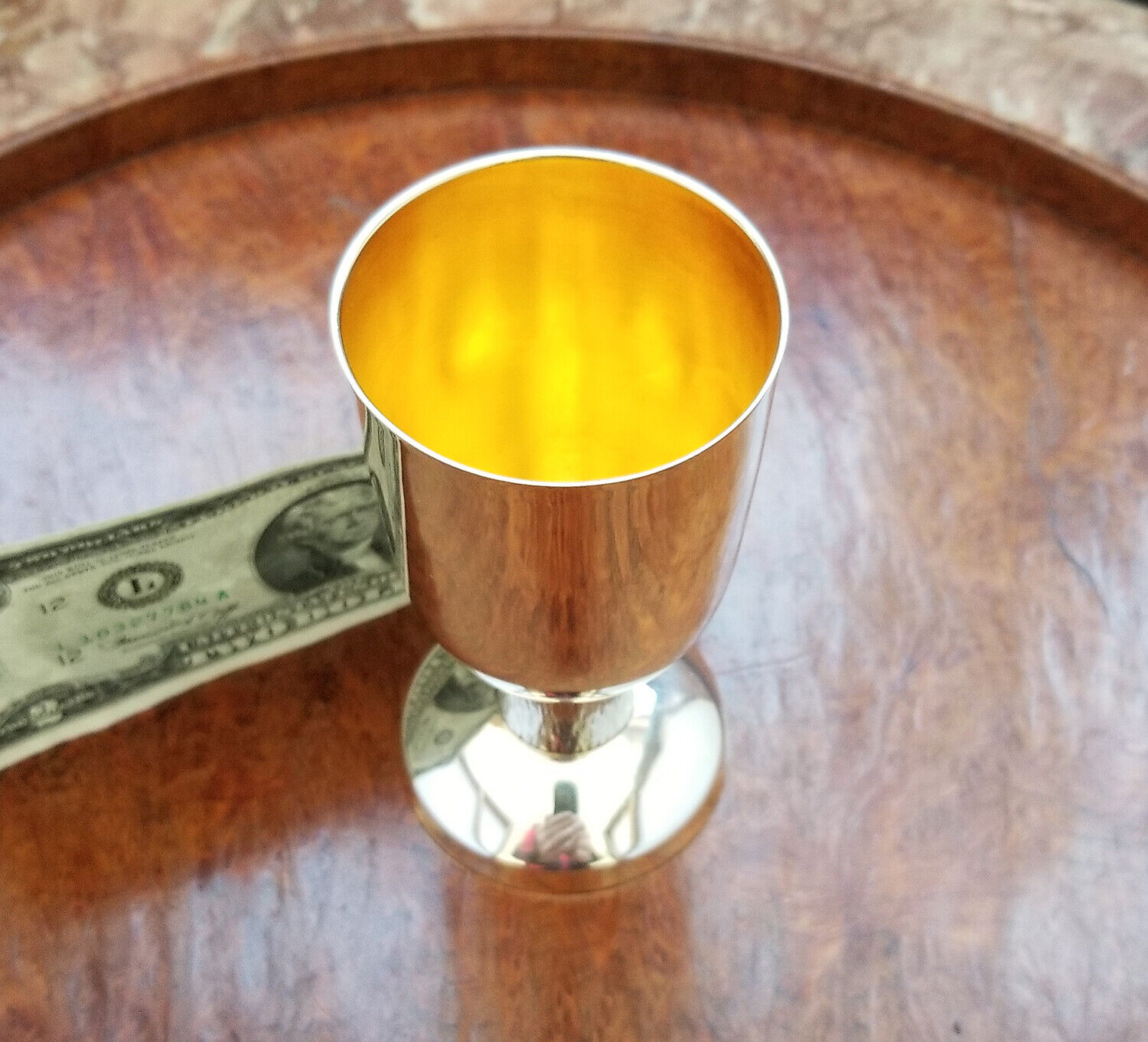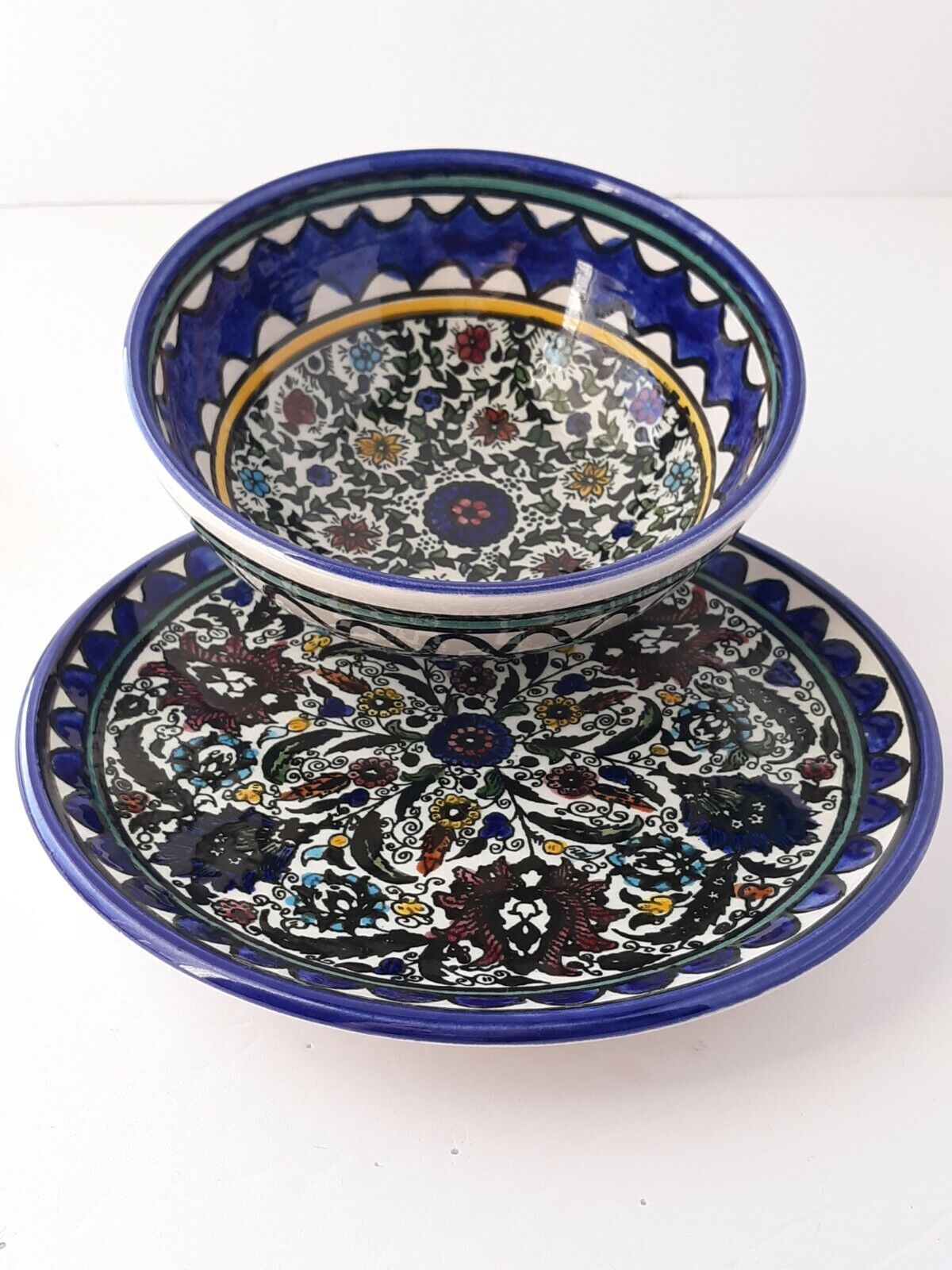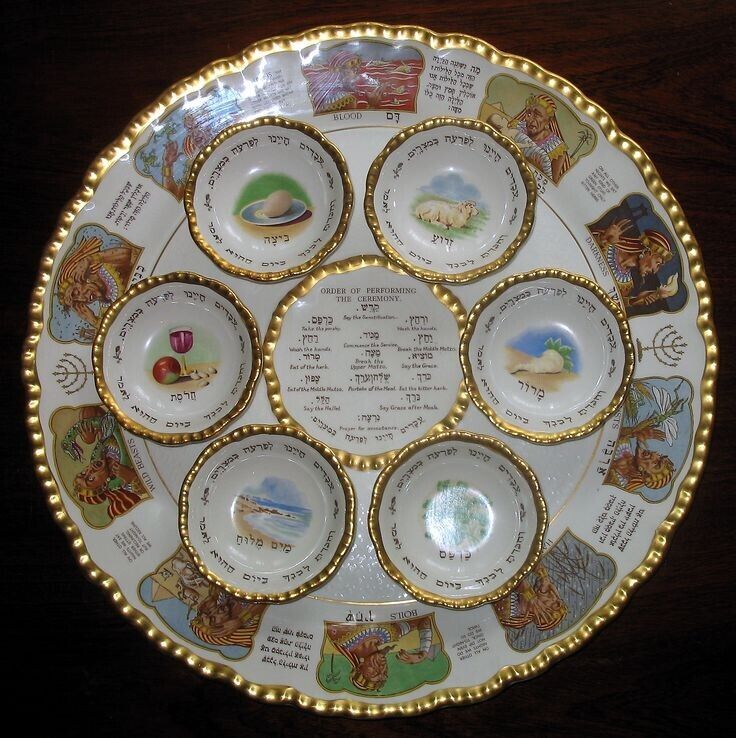-40%
Hand Washing Cup NATLA Stainless Silver Metal Netilat Yadayim, Synagogue Judaica
$ 10.42
- Description
- Size Guide
Description
Handy Natla - Jewish Hand Washing Cup, Brand New, Stainless SteelHand washing cup cast of stainless steel in silver tone nickel finish , this is
traditional custom in Judaism
,
one of a meaningful mitzvah on daily basis. For home, Synagogue, temple. Washing the hands for cleansing and say the blessing before the meal
Handy - Medium - Size, Kosher, holds 0.75 Liter / 25.5 Ounce / 1.6 Pint(US liq.)
Size (Height) :
4.3 inch / 11 cm
Diameter
(Top): 4.3 inch / 11 cm
Great Judaica Jewish gift, for friend and home, synagogue, holidays festivals, passover, events and other "Simchas"! (happy occasions)
Washing the hands (from Wikipedia)
[]
General basis in Jewish law
The rabbis of the Talmud derived the requirement of washing the hands as a consequence of the statement in
Leviticus
15:11
And whoever he that hath issue (a
zav
, ejaculant with an unusual discharge) touches without having rinsed his hands in water, he shall wash his clothes, and bathe himself in water, and be unclean until the evening.
[
3
]
and from
Psalms
26:6
I will wash my hands in innocence; so will I compass Thine altar, O LORD.
[
4
]
The
Talmud
inferred the specific requirements of hand-washing from these passages.
The general Hebrew term for ritual hand washing is
netilat yadayim
, meaning
lifting up of the hands
. The term "the washing of hands" after evacuation is sometimes referred to as "to wash
asher yatzar
" referring to the
bracha
(blessing) said which starts with these words.
Halakha
(Jewish law) requires that the water used for ritual washing be naturally pure, unused, not contain other substances, and not be discoloured. The water also must be poured from a vessel as a human act, on the basis of references in the Bible to this practice, e.g.
Elisha
pouring water upon the hands of
Elijah
. Water should be poured on each hand at least twice. A clean dry substance should be used instead if water is unavailable
[
citation needed
]
[
edit
]
How performed
Contemporary practice is to pour water on each hand three times for most purposes using a cup, and alternating the hands between each occurrence; this ritual is now known by the
Yiddish
term
negel vasser
, meaning
nail water
. This Yiddish term is also used for a special cup used for such washing.
[
edit
]
At meals
"Ntillat yadayim" redirects here.
The
Babylonian Talmud
[
5
]
discusses two types of washing at meals: washing before a meal is described as
first waters
(the Hebrew term is
mayim rishonim
), and after a meal is known as
last waters
(the Hebrew term is
mayim aharonim
). The first term has generally fallen from contemporary usage; the second term has stuck. The modern term for the former is
Ntillat yadayim
, washing of hands. Washing before meals is normative in
Orthodox Judaism
.
The
Gemarah
of the
Babylonian talmud
contains homilectic descriptions of the importance of the practice, including an argument that washing before meals is so important that neglecting it is tantamount to un
chastity
, and risks divine punishment in the form of sudden destruction or poverty.
[
6
]
[
7
]
The discussion of
mayim acharonim
, washing after meals, contains a suggestion that washing after meals, as a health measure, is the more important of the two washings, on grounds that the salt used as a preservative in food could cause blindness if the eyes were rubbed without washing.
[
8
]
Although
mayim acharonim
was once not widely practiced (for example, until recently it did not appear in many Orthodox Passover
Haggadahs
) it has undergone something of a revival and has become more widely observed in recent years, particularly for special meals such as the
Shabbat
and
Jewish holidays
.
Conservative Judaism
has supported discontinuing the practice of
mayim acharonim
on the grounds that the rabbis of the Talmud instituted it as a health measure, and since modern foods no longer contain preservatives so dangerous as to cause blindness upon contact with the eyes, washing the hands after meals is no longer required and can be discontinued by contemporary rabbinic decision.
[
citation needed
]
The standard
Passover Seder
has an additional, third washing, prior to eating the green vegetable, which is considered an act of eating separate from the meal. In Orthodox Judaism, it also has the same types of washings as any other meal, one before the meal and one after. Only the one before the meal is generally done outside Orthodox Judaism
[
edit
]
Before worship
A sink for ritual hand washing at the entrance to the
Ramban Synagogue
.
According to the
Shulchan Aruch
, a person should wash both hands before prayer, based on a tradition requiring ritual purification upon entering the
Temple in Jerusalem
, in whose absence prayer, in
Orthodox Judaism
, serves in its place.
[
edit
]
Before the Priestly Blessing
In
Orthodox Judaism
(and, in some cases, in
Conservative Judaism
),
Kohanim
, members of the priestly class, offer the
Priestly Blessing
before the congregation on certain occasions. Before performing their offices, they are required to wash their hands. Judaism traditionally traces this requirement to the
Torah
:
And Aaron and his sons shall wash their hands and their feet thereat; when they go into the tent of meeting, they shall wash with water, that they die not; or when they come near to the altar to minister, to cause an offering made by fire to smoke unto the LORD.
[
9
]
It is customary for
Levites
to pour the water over the hands of the Kohanim and to assist them in other ways. In many communities, washing the feet before the Priestly Blessing is not practiced in the absence of a
Temple in Jerusalem
.
[
edit
]
After sleeping
The
Talmud
states God commanded Jews
to wash the hands
and provides the text of the
netilat yadaim
blessing still in use.
[
10
]
According to the
Shulchan Aruch
a person who slept is required to wash upon arising, and says the
natilat yadayim
blessing.
[
edit
]
Other occasions
The hands are also washed:
after visiting the bathroom, the ritual washing of one's hands as a symbol of both bodily cleanliness and of removing human impurity.
after cutting one's hair or nails
after participating in a funeral procession, upon leaving a cemetery, or coming within four cubits of a corpse
after touching a normally covered part of your body(private parts, back , arm pits, etc.)
after touching inside of nose and ear
after touching the scalp, but not if you just touched the hair
prior to scribal work (optional)
Feel Free to contact us with any question
Liorel, Art from Israel
Find a special gift
Unique art works & gifts, handmade by Israeli artists
Vintage antiques & collectibles from the early days of Israel
Ordering & Shipping Information
100% customer satisfaction guaranteed.
We are a small team dedicated to your service and always want to make sure that you are happy. If you're not satisfied - we're not satisfied.
Worldwide Shipping from Israel.
All orders are insured for loss or damage. Wrapping and packing are done with great care, to ensure safe arrival of the goods.
Combined Shipping:
Order More - Pay Less. We are happy to combine shipping costs as possible, it saves us and you and the environment too!
If you think of purchasing more items from store - please add all items to the shopping cart, the shipping price combines automatically for each additional item.
Shipping price is based on weight and includes the cost of Insurance, handling and packaging, packing materials.
Shipping Options:
Standard, Express and Sea mail. For Express or Sea mail please contact us for a price quote.
Estimated Delivery Time:
By Standard Mail: 10-15 business days (2-3 weeks)
. Express mail: 5-8 business days.
Sea Mail: 1.5-2 months. This is the average delivery time to most places in the world.
Please check the estimated delivery time to your country before purchase (it is written on the item page).
It is best to order ahead of time, as to some countries shipping can take longer than usual. We appreciate your help and patience.
Shipping Enquiries and Delays:
Shipping depends on the final location and the mail services of each country, and delivery times might take
up to 35 business days,
or even more during holidays or to distant locations.
Please contact us if you haven’t received your order within 4 weeks, by marking “I have a question about item”,
and we will solve the problem to your full satisfaction. Remember, once we put the parcel in the post office we depend on the mail services to do their job efficiently and fast.
Returns and other issues
after arrival of goods
:
We always care for your full satisfaction. Please contact us via eBay messages before processing a return, as most situations can be solved faster without going through the process. When contacting us please mark "I have a question about item".
Handling time
can take up to 5 Business days. For some handcrafted items or custom orders it may take more, as stated in the shipping section on item page.
Payment:
All major credit cards are accepted with
Paypal
. Payment must be made within
two weeks
. If you need more time please let us know in advance.
For more information please see our
Ordering & Shipping Page
Thank you for visiting!
Similar words : Netilat Yadayim yadiyim yadaim nattla Natla yadaim Jewish Judaism hand wash washing cup jug jar food blessing bless judaica beit knesset kneset synagugue home

